Recently, we had the pleasure of speaking with CEO Jessica (Jess) Rowlings and Dr Matthew (Matt) Harrison about their organisation Next Level Collaboration, a neurodiverse-positive social capacity-building program for young people delivered through online gaming experiences.
How did you decide to create a gaming space for neurodiverse students?
The idea for Next Level emerged while Matt was working as a teacher 15 years ago. He had a group of students, some with formal autism or ADHD diagnoses, who were at risk of becoming disengaged. They found unstructured play during lunchtimes difficult. Matt started a lunchtime gaming club and was surprised at the immediate results.
“I started to see they had real strengths based on their knowledge of these games. They had oral language skills, knew how to navigate the game words, and underwood the strategies involved. They took on leadership positions within the games that they didn’t in other contexts. That got me curious about how to leverage the game conditions to support them to develop collaborative skills, feel valued and build a community around gaming.”
How does Next Level work?
Next Level consists of three key stages: skill instruction, supported play and guided reflection. Students practise these learned skills in the game, through communication, teamwork or asking for help.
Matt comments:
“The challenge is not skill acquisition but recognising when these skills are useful and self-regulating their emotional state to use them at the point of need. It’s about using these games as spaces and tools for teaching and learning.
For many neurodivergent children, the gaming world represents their social network and where they find connection. It can provide a space to express themselves, play and make friends. However, as in the real world, toxicity exists online too.
Can you help us understand what neurodivergent means?
Jess explains: “The term biodiversity means all the different forms of life on earth, right? Neurodiversity is a similar concept but for human neurology. So, things like autism, ADHD, and dyslexia are differences in the natural variation that we all have. We all look very different – it’s awesome! I think the world would be a boring place if everyone were the same. Everyone’s neurology, bodies and brains work in different ways.”
Neurodiversity refers to the different ways the brain can function, learn and interpret information. First coined by Australian sociologist Judy Singer, neurodiversity is a framework which considers all the different variations in human brains. The term highlights that people think about things differently, have different interests and motivations, and are naturally better and worse at some things. It’s estimated that 1 in 7 people in the UK is neurodivergent.
How bad is cyberbullying for neurodivergent gamers?
Both online and offline, neurodivergent children are more likely to be victims of bullying. Researchers at the University of New South Wales have identified autism as a top risk factor for bullying among all neurodiversities, and a study in Canada found that 77% of children on the autism spectrum reported being bullied. However, the risk is also substantially higher for children with other neurodevelopmental disorders like ADHD, Tourette syndrome and intellectual disability, when compared with non-neurodiverse children. Jess comments:
“Cyberbullying can happen in different ways – this often depends on the platform being used. Exclusion can occur through private group chats, or children might post targeted content on other platforms such as Instagram or TikTok.”
There are many reasons bullying can occur online, such as jealousy, personal dislike, or someone trying to feel better about themselves by putting down others. Jess adds:
“Neurodivergent children are more likely to be seen as ‘different’ by their peers – they might have unique mannerisms or speech patterns, and their interests might be different to what is accepted by their peers. This can make them stand out as a target for bullying from other children.
“In my experience, neurodivergent students are more likely to be a victim of bullying than a perpetrator, but there of course can be instances where someone is both being bullied and bullying others. Children who are being bullied, regardless of their neurotype, might bully others to try and feel some power over their situation.”
Matt comments:
“Online spaces are just another avenue for bullying. The real challenge is that some communities offer the protection of being anonymous. People can give in to their darker impulses and don’t feel there is a risk of getting caught.
“Targeting neurodivergent kids in the gaming world can look like many different things. A lot of the gamers we work with are massive Minecraft fans, and bullying might happen if someone is intentionally destroying their build, using inappropriate language or insults in the text chat.
“The reality is that bullying can happen in both the physical and virtual worlds. What’s consistent is the standard of behaviour that’s acceptable across both. The problem isn’t necessarily with the setting or the environment of online games but with the person’s behaviour.
What can we do to protect neurodivergent children?
Matt and Jess both emphasise the importance of ensuring online gaming communities are safe and supportive for all.
“Parents must understand the gaming community and the best way to do that is to play online with their kids. Saying no to gaming doesn’t work because there’s peer pressure to join in and kids may feel socially excluded if they can’t.”
Jess notes the importance of ensuring neurodivergent kids can recognise whether or not another player has good intentions.
“If someone is saying something that makes you feel uncomfortable or sending you something you don’t feel is OK, then it’s a sign that they’re not a friendly player. If someone treats you in a friendly way they might ask if they can do something before doing it. If you tell them not to do something, they stop. There are a lot of parallels in the physical world. If someone touches me if I’ve told them not to, that’s not OK.”
She also points to the preventative measures being taken, providing the example of Stuart Duncan, a father whose autistic son was a victim of bullying on Minecraft. Stuart addressed this by creating Autcraft, a closed community designed to be a safe and inclusive space for autistic kids and their families.
How is Next Level helping neurodivergent children?
Next Level focuses on creating safe online spaces where neurodivergent kids can feel part of a community. The work Jess and Matt do is about equipping them with essential social skills through cooperative gaming while making it a positive and – above all – fun experience.
Next Level is facilitated by trained educators, designers, therapists and researchers with lived experience of neurodiversity in locations in and around Melbourne. Jess adds: “We work with the neurodivergent community because we want their voices, their perspectives. Nobody knows about neurodivergence better than the people who’ve lived it.”
Jessica Rowlings is a qualified speech and language pathologist, neurodiverse researcher and the University of Melbourne’s first openly-autistic CEO (go Jess!). Matt Harrison is a researcher and senior lecturer at the University of Melbourne who’s also an experienced teacher. Both share a passion for gaming and utilising technology to enhance social capacity among young people.
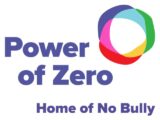
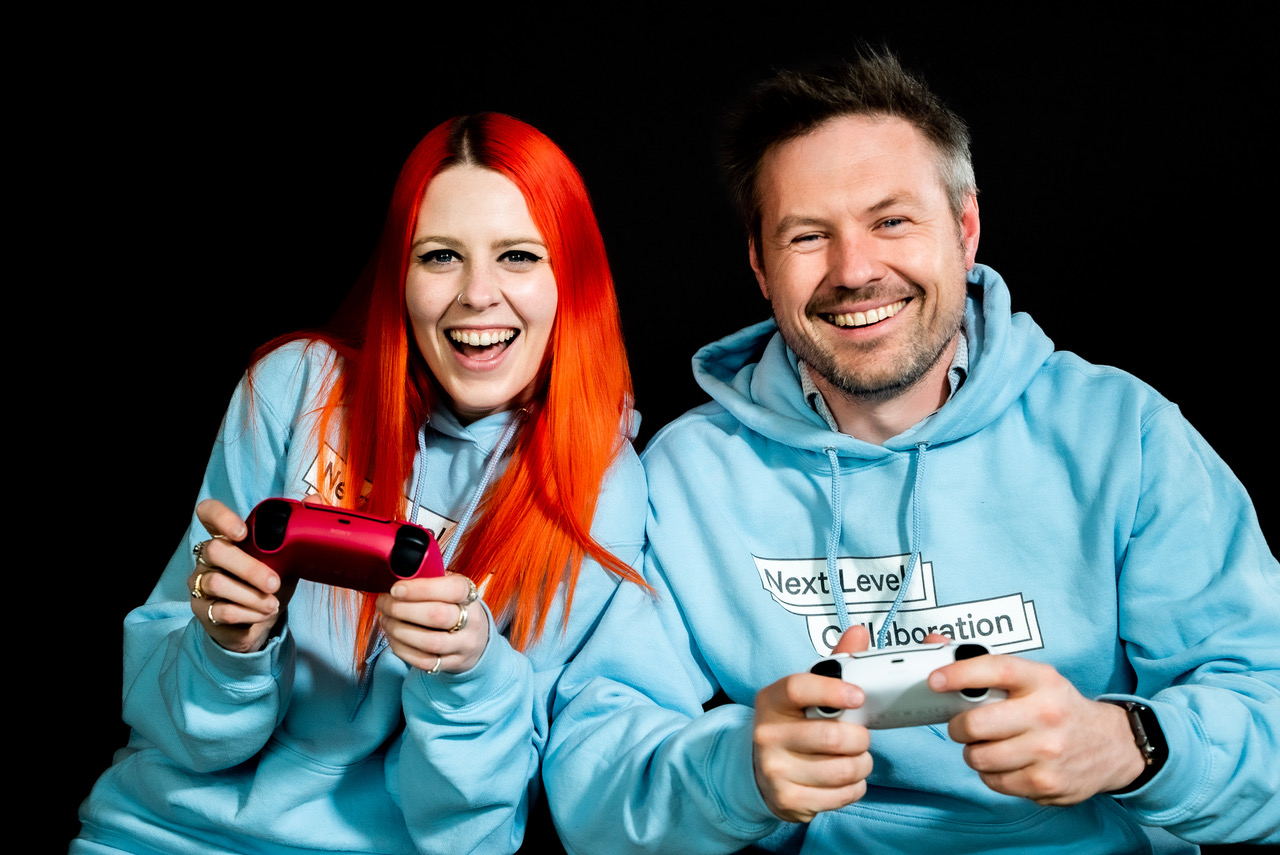
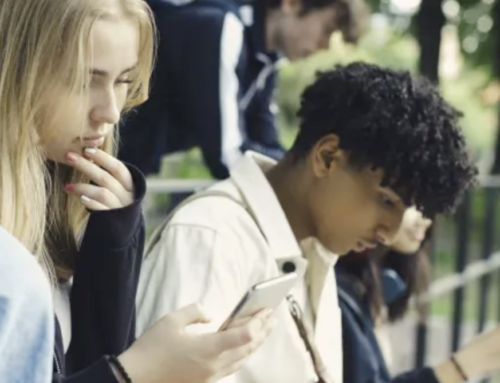

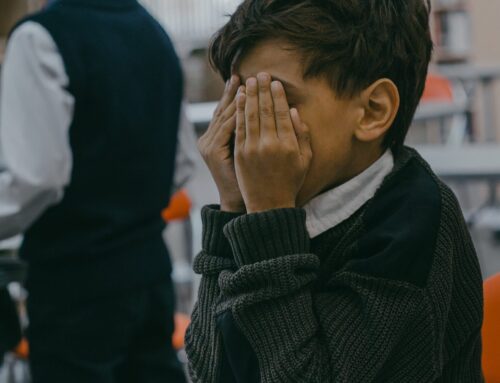

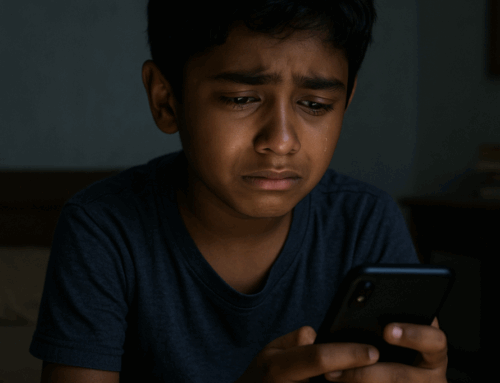
Leave A Comment